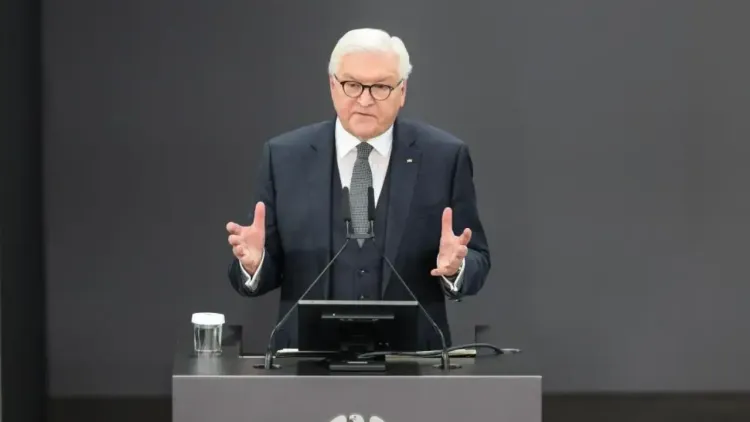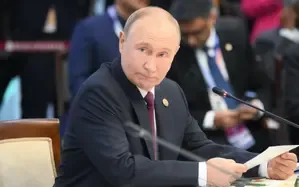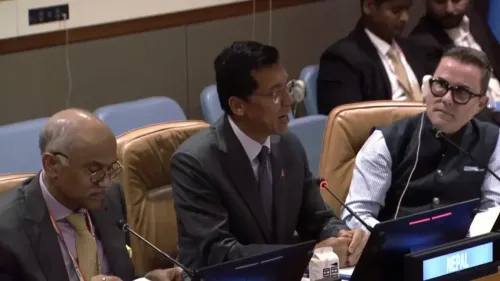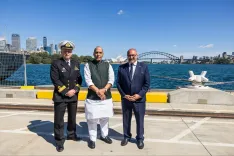German President Dissolves Bundestag, Snap Elections Scheduled for February

Berlin, Dec 27 (NationPress) German President Frank-Walter Steinmeier announced on Friday the dissolution of the Bundestag, the lower house of parliament, initiating the process for early federal elections.
Steinmeier confirmed in Berlin that the snap elections are set for February 23, following discussions among key political factions.
During his announcement, Steinmeier emphasized the necessity of a competent government with a trustworthy parliamentary majority, especially in these challenging times.
According to the Xinhua news agency, he stated that new elections represent the most suitable path for the nation's welfare.
On December 16, Chancellor Olaf Scholz faced a confidence vote in the Bundestag, which he lost.
This outcome led to the dissolution of Scholz's minority coalition government and set in motion the early federal elections.
The confidence vote resulted in 207 members supporting Scholz, while 394 opposed him, and 116 abstained.
This type of vote had not occurred in Germany for nearly two decades.
Scholz had called for the confidence vote the week prior, referencing Article 68 of the Basic Law, as a strategy to initiate early elections, a move long urged by major opposition parties.
Although in theory, Scholz could have remained in office without a majority, it would have been politically impractical since the Bundestag would struggle to pass legislation.
Concerns arose that an unexpected victory for Scholz could occur, particularly if members of his SPD and the Greens voted affirmatively, while the AfD also backed him to create confusion.
To avert the risk of unintended backing from the AfD's 76 members potentially granting Scholz the necessary 367 votes, the leadership of the Green party advised its members to abstain.
Originally, the regular federal elections were slated for September of the following year. However, the 'traffic light coalition' comprising the SPD, Greens, and FDP could not reach an agreement on a joint budget for 2025. Disputes emerged regarding tax distribution, economic stimulus initiatives, and investment funding.
During the peak of the discord, Chancellor Scholz dismissed FDP Finance Minister Christian Lindner; this led to resignations from other FDP ministers as they withdrew from the governing coalition.
After his confidence vote loss, Scholz met with President Steinmeier, recommending the Bundestag's dissolution.
Steinmeier had 21 days to decide on the parliament's dissolution and had indicated he would likely proceed.
If the Bundestag was disbanded, new elections were required within 60 days. Both the SPD and CDU/CSU proposed February 23 as the election date. Ultimately, Steinmeier would finalize the date.
Even post-dissolution, the Bundestag remained operational. The Federal Chancellor, the government, and its ministers continued in their roles until a new Chancellor was elected by the incoming Bundestag the following year.
Historically, there have been five instances in Germany where a confidence vote has been called.









